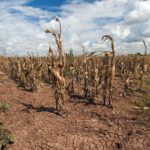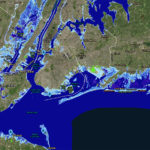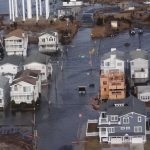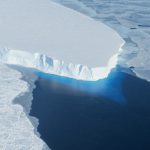Rutgers-led study examines role of stationary low- and high-pressure systems Global warming is projected to spawn more extreme wet and dry weather around the world, according to a Rutgers-led study. Those extremes include more frequent dry spells in the northwestern, central and southern United States and in Mexico, and more frequent heavy rainfall events in […]
What You Need to Know About the Latest U.N. Climate Change Report
Climate scientist Robert Kopp explains the findings of the latest report by the Intergovernmental Panel on Climate Change including the need to achieve net-zero carbon emissions The United Nations scientific panel on climate change recently released a major report that examined the benefits of trying to limit global warming to 1.5 degrees Celsius above nineteenth-century […]
Global Sea Level Could Rise 50 Feet by 2300, Says Study Managing Coastal Risk
Global average sea-level could rise by nearly 8 feet by 2100 and 50 feet by 2300 if greenhouse gas emissions remain high and humanity proves unlucky, according to a review of sea-level change and projections by Rutgers and other scientists. Since the start of the century, global average sea-level has risen by about 0.2 feet. […]
Paul Falkowski and Fellow Rutgers Scientists Identify Protein That May Have Existed When Life Began
The primordial peptide may have appeared 4 billion years ago How did life arise on Earth? Rutgers researchers have found among the first and perhaps only hard evidence that simple protein catalysts – essential for cells, the building blocks of life, to function – may have existed when life began. Their study of a primordial […]
Surrendering to Rising Seas: Rutgers Faculty Assist with the Retreat
Coastal communities struggling to adapt to climate change are beginning to do what was once unthinkable: retreat. Brooke Maslo and Jeremiah Bergstrom, faculty in the Department of Ecology, Evolution and Natural Resources and members of Rutgers Cooperative Extension Water Resources Program, are featured in this Scientific American article for their work on the restoration of […]
Renowned Rutgers Marine Scientist J. Frederick Grassle, Whose Pioneering Work Helped Unlock the Ocean’s Mysteries, Dies
Built a program of excellence in research, education and community service in marine and coastal sciences at university J. Frederick Grassle, a celebrated oceanographer who founded Rutgers Institute of Marine and Coastal Sciences, passed away on July 6. As the founding director of the institute in 1989, Grassle was instrumental in establishing the university as […]
Peter Strom Wins NJWEA Wastewater Hall of Fame Award
Peter Strom, professor in the Department of Environmental Sciences, was presented the New Jersey Water Environment Association (NJWEA) Wastewater Hall of Fame Award at the NJWEA Conference in May. The award recognizes members of the association who have demonstrated dedication and competitive achievement in the wastewater field. Those inducted into the NJWEA Hall of Fame […]
Distinguished Professor Paul Falkowski Awarded the Tyler Prize for Environmental Achievement
The 2018 Tyler Prize for Environmental Achievement – often described as the ‘Nobel Prize for the Environment’ – has been awarded to Paul Falkowski and James J. McCarthy, for their decades of leadership in understanding – and communicating – the impacts of climate change. Paul Falkowski, one of the world’s greatest pioneers in the field […]
New Jersey Climate Adaptation Alliance Launches Social Media Campaign
Rutgers-facilitated group seeks to inform the public about greenhouse gas emissions, climate change impacts and resilience Did you know that New Jersey can expect higher temperatures, heavier rains, rising sea levels and more frequent and severe coastal flooding this century? Did you know the Garden State must reduce its current greenhouse gas emissions by 75 […]
Robert Kopp Says Sea-Level Rise Projections Made Hazy By Antarctic Instability
Scientists should have a much better understanding in a few decades how high the sea level could rise, Rutgers-led study says. It may take until the 2060s to know how much the sea level will rise by the end of this century, according to a new Rutgers University–New Brunswick-led analysis. The study is the first […]











